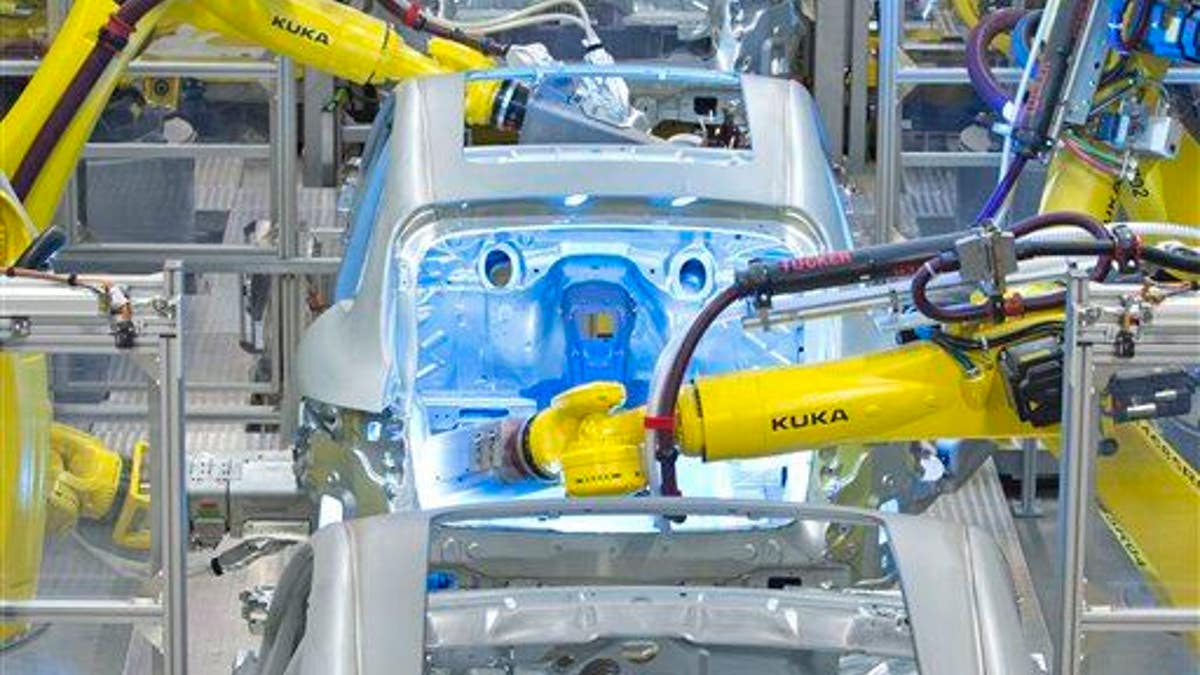
A new study says robots have potentially killed more than 600,000 jobs in the US. (AP Photo/Jens Meyer)
It turns out the robot uprising was a whole lot less The Terminator and a whole lot more Roger & Me. A study from economists at MIT and Boston University published this month by the National Bureau of Economic Research attempts to quantify the effects of industrial automation on American employment.
It found that between 1990 and 2007, each robot added to the workforce reduced employment in the local commuting area by three to six jobs, Quartz reports.
The addition of one robot per thousand workers also lowered wages by 0.25% to 0.5%. Overall, the report estimates robots cost the US between 360,000 and 670,000 jobs total during the span in question, according to the Verge.
But robots don't affect all jobs equally. Unsurprisingly, robots had the biggest impact on the wages of America's lowest earners—blue collar workers and those without a college education—and could be responsible for growing the wage gap, Bloomberg reports.
More From Newser
The automotive industry has taken the brunt of the robot uprising, with 39% of the US' industrial robots working in that industry. Some experts expect the number of robots working in the US to more than double by 2025 to more than 3 million.
And it remains to be seen whether the market will find new jobs for humans, as it has after the advent of new technologies in the past, or whether robots will continue to depress employment and wages into the future.
(A lawsuit claims a malfunctioning robot killed a woman at work.)
This article originally appeared on Newser: Here's How Much Robots Have Lowered Humans' Wages in US




















